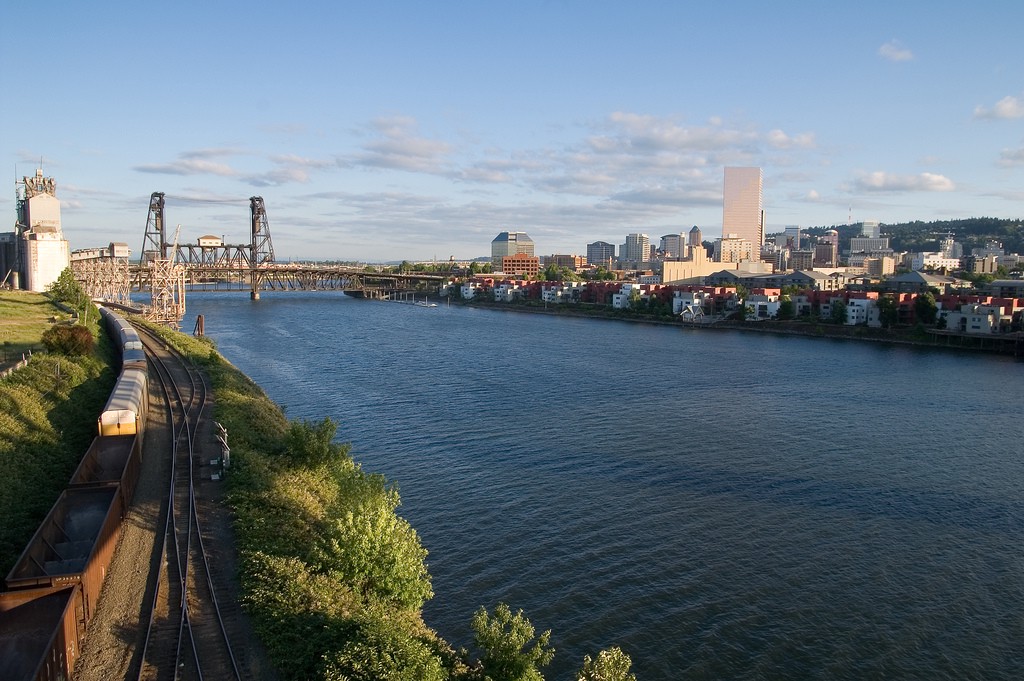Where Should You Move if You Want to Earn Money? How About if You Want to Save It?

Tech Insider recently published a list of the “20 best places to live in America if you want to make a lot of money.”
The 20 best places to live in America if you want to make a lot of money
I’m not sure if I’m surprised by this list or not. I’ll tell you what does surprise me:
- I’ve lived in five out of the 20 cities (Los Angeles, Minneapolis, Portland, Seattle, and Washington DC—though Portland might not count since I only lived there as a very young child).
- The list uses median annual salary to determine whether you’re likely to be a high earner.
It plays out a little like this: Seattle, my current home city, ranks #6 on “best places to live in America if you want to make a lot of money.” The median annual salary is $57,370—higher than Los Angeles at $53,000, but lower than Washington DC at $64,930. (LA and DC rank #11 and #3, respectively.)
As a point of comparison, the Bureau of Labor Statistics’ latest earnings data indicates that in fourth quarter 2015 median American income was $820 per week ($901 if you’re male and $720 if you’re female), which we can extrapolate to around $42,640 a year.
So if you live in any of the 20 highest-earning cities, you have slightly better odds of beating the US median income—but, really, only 50–50 odds of beating the city’s median income, because that’s how a median works.
(Before you tell me “that’s not how odds work,” the technical definition of a median is “denoting or relating to a value or quantity lying at the midpoint of a frequency distribution of observed values or quantities, such that there is an equal probability of falling above or below it.” Emphasis mine. I know there are other factors involved, like education and career history and family background and gender and race and so on, but mathematically, you’ve got 50–50 odds.)
Let’s say you do move to one of these cities, like I did, and you do earn more than the city’s median income, like I’m currently doing. Does that mean you’re making a lot of money? I know I’m doing better than many people, but I would not say that I am earning a lot of money. I’m still living in a moderately shabby apartment and working on building my three-month emergency fund.
There are a few ways to think about a list like this, and none of them involve median income. First, you could think “which industries pay the highest salaries, and in which cities are those industries located?” San Jose is #1 on Tech Insider’s list, and it would probably be at the top of this list as well.
You could also think “here are the 20 most common jobs; in which cities are these jobs likely to earn the most?” That would start to pull the list away from “best places to earn a lot of money” and move it towards “best places to earn the most money for the skills you have,” but let’s be honest—the majority of us aren’t going to earn a lot of money. (See “how math works,” above.) It would be much more interesting to learn where we could go to earn the most money for our current skills and abilities.
Of course, the cities that pay the best often do it as a way to balance out the high cost of living, so you’d really need to compare wages/salaries and costs of living and figure out where people would be the most likely to have money left over. That would change the list to “20 best places to live in America if you don’t want to live paycheck to paycheck,” which would probably be an equally clickable title and would have much more useful information.
Luckily the internet is vast and wide, and it took me about two seconds to find Forbes’ list of “10 Best (and Worst) Cities for Saving Money,” which uses a similar methodology:
10 Best (And Worst) Cities For Saving Money
The best city for saving money? Portland. The worst? San Francisco. (Seattle doesn’t make either list. New York, San Jose, and LA are on the worst list, surprising nobody.)
Did you think about what you might earn, when you moved to your current location? I moved to Washington DC in part because I wanted to live in a place that paid relatively high salaries for my skills (also in part because my sister lived there, and I could sleep on her floor until I got a job and an apartment).
Or did you think about what you might save? I moved to Seattle in part because I couldn’t afford to live in Los Angeles (another city in which I slept on the floor, this appears to be a personal trend).
If you were to move again, what would be the most important factor?
Support The Billfold
The Billfold continues to exist thanks to support from our readers. Help us continue to do our work by making a monthly pledge on Patreon or a one-time-only contribution through PayPal.
Comments